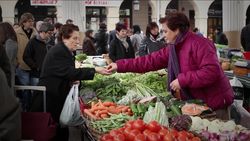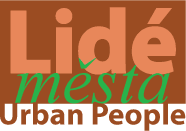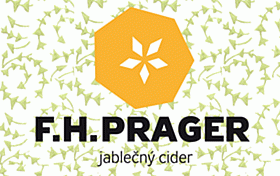ČR, 2013, 150 min
Katedra antropologie ZČU v Plzni
26.01.2013 11:00
Together with experts we will discuss the question of filmmaking in anthropology: What is ethnographic film? How can its ethnographicness be characterized? Is there any difference between ethnographic film and a video documentary from field research? What are the advantages and limits of ethnographic film in comparison with text as a standard medium of academic production?
International guests
Johannes Sjoberg, Granada center, University of Manchester, UK
Jaroslava Panáková, Comenius University, Bratislava, Slovakia
Sophie Wagner, festival Ethnocineca, University of Vienna, Austria
The language of communication is English.
ČR, 2012, 7 min
René Starhon & Kristýna Fendrychová
26.01.2013 15:10
Who isn’t from circus community is called „chrapoun“.. The visit in family Kaiser reveals some aspects of life of circus community which can still represent for us something strange, unknown but also attractive. This short film focuses mainly on language specificity which is also connected with a problem of differentiation of circus community and with a question about intergenerational translation of circus slang.
Director: René Starhon & Kristýna Fendrychová
Production: René Starhon & Kristýna Fendrychová
Language of dialogues:Czech
Language of subtitles: -
Spain, 2012, 16 min
Farapi & Monika Hertlová
26.01.2013 17:30
 In the Basque country, the local distribution of agricultural products plays a very important role. Despite the strong pressure of foreign import, the traditional markets are an inseparable part of every day life of local people. Thus number of family farms has continued with its first-class production until these days. However, work at a farm is usually connected with a man – a man herdsman, a man farmer, a man trader. Eventhough, a woman is an important part of this world, she is usually overshadowed. But how is the everyday reality of a woman – landowner? To make a woman visible in the context of agricultural production was one of the goals of the documentary „Gaur 8 Azokan“, which resulted from the need of local rural women to emancipate, and whose hard work we do not know at all. The complementary character of gender roles within the rural world is shown in the light of anthropological perspective, and at the end, it will be clear that the rural world could never exist without both components – the productive and reproductive, the male and female.
In the Basque country, the local distribution of agricultural products plays a very important role. Despite the strong pressure of foreign import, the traditional markets are an inseparable part of every day life of local people. Thus number of family farms has continued with its first-class production until these days. However, work at a farm is usually connected with a man – a man herdsman, a man farmer, a man trader. Eventhough, a woman is an important part of this world, she is usually overshadowed. But how is the everyday reality of a woman – landowner? To make a woman visible in the context of agricultural production was one of the goals of the documentary „Gaur 8 Azokan“, which resulted from the need of local rural women to emancipate, and whose hard work we do not know at all. The complementary character of gender roles within the rural world is shown in the light of anthropological perspective, and at the end, it will be clear that the rural world could never exist without both components – the productive and reproductive, the male and female.
FARAPI is a consulting company of Applied Anthropology residing in San Sebastian in the Basque country. FARAPI deals with public and commercial orders related to social themes (such as gender equality, migration, minority, market research, etc.). The documentary “Gaur 8 Azokan“ is the second audio-visual output of a longitudial survey concerning the current position of women in the context of rural world in the Basque country.
Monika Hertlova cooperated with FARAPI on the production of the documentary during her working stay. She is also a co-author of short documentary “Don´t dig in to us, we are not dead yet“ (2011), which reflects current activities of Scout Movement in the Czech Republic. At the moment, Monika Hertlova works for the Studio of Visual Ethnography on the Department of Anthropology of Faculty of Philosophy and Art of West Bohemia University in Pilsen in the Czech Republic, where she cooperates on the production of other audio-visual films.
Director: Farapi & Monika Hertlová
Production: Asociación de Mujeres Kimetz
Language of dialogues: Spanish, Basque
Language of subtitles: Czech

 In the Basque country, the local distribution of agricultural products plays a very important role. Despite the strong pressure of foreign import, the traditional markets are an inseparable part of every day life of local people. Thus number of family farms has continued with its first-class production until these days. However, work at a farm is usually connected with a man – a man herdsman, a man farmer, a man trader. Eventhough, a woman is an important part of this world, she is usually overshadowed. But how is the everyday reality of a woman – landowner? To make a woman visible in the context of agricultural production was one of the goals of the documentary „Gaur 8 Azokan“, which resulted from the need of local rural women to emancipate, and whose hard work we do not know at all. The complementary character of gender roles within the rural world is shown in the light of anthropological perspective, and at the end, it will be clear that the rural world could never exist without both components – the productive and reproductive, the male and female.
In the Basque country, the local distribution of agricultural products plays a very important role. Despite the strong pressure of foreign import, the traditional markets are an inseparable part of every day life of local people. Thus number of family farms has continued with its first-class production until these days. However, work at a farm is usually connected with a man – a man herdsman, a man farmer, a man trader. Eventhough, a woman is an important part of this world, she is usually overshadowed. But how is the everyday reality of a woman – landowner? To make a woman visible in the context of agricultural production was one of the goals of the documentary „Gaur 8 Azokan“, which resulted from the need of local rural women to emancipate, and whose hard work we do not know at all. The complementary character of gender roles within the rural world is shown in the light of anthropological perspective, and at the end, it will be clear that the rural world could never exist without both components – the productive and reproductive, the male and female.


